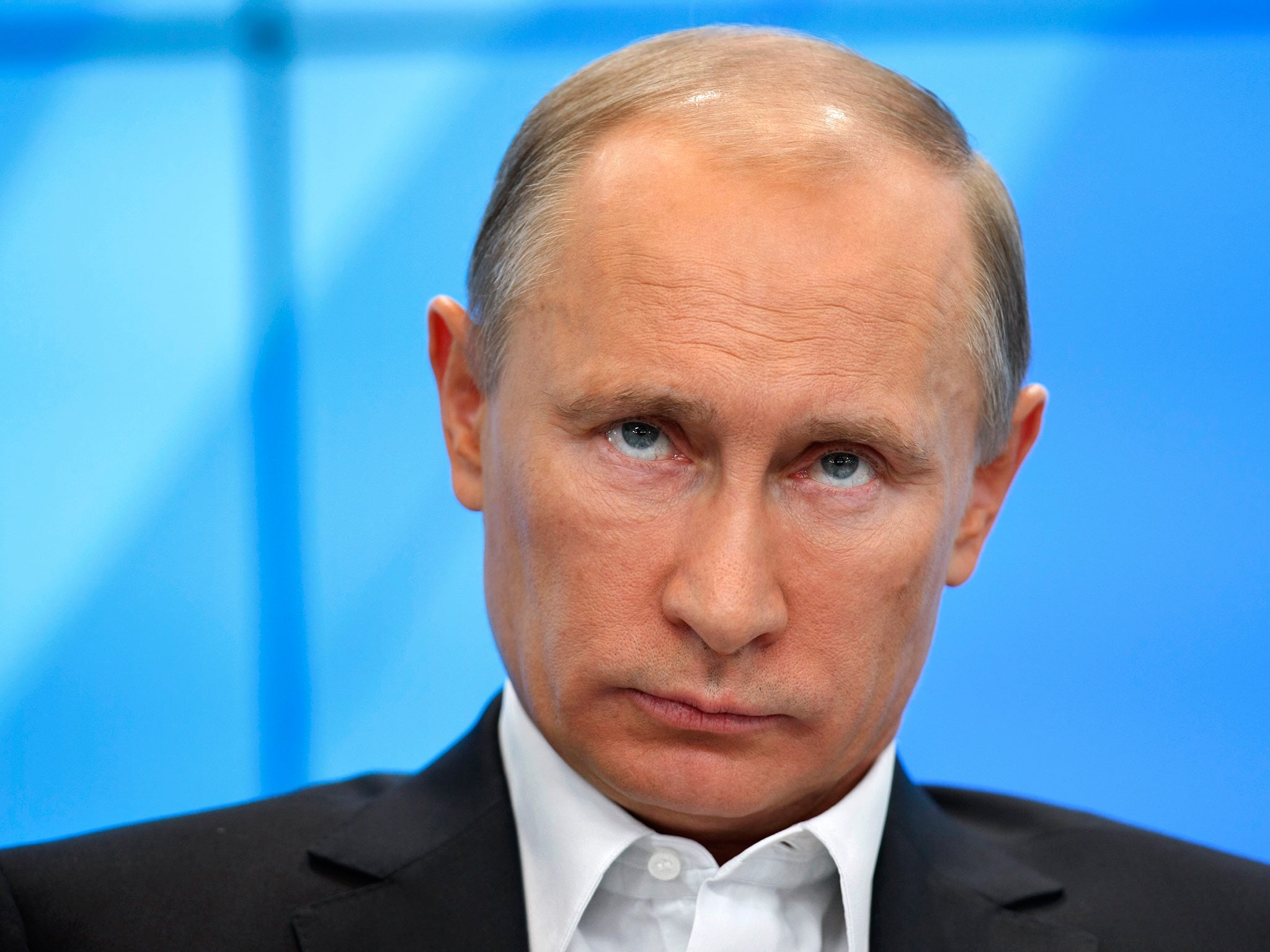Where is Vladimir Putin? Russia's President has been awol for 10 days and the rumour mill is in overdrive
Claims of ill health and fatherhood have been denied, but in his absence, the popularity of Russia's strongman leader (according to pro-Kremlin pollsters) has hit an all-time high

Your support helps us to tell the story
From reproductive rights to climate change to Big Tech, The Independent is on the ground when the story is developing. Whether it's investigating the financials of Elon Musk's pro-Trump PAC or producing our latest documentary, 'The A Word', which shines a light on the American women fighting for reproductive rights, we know how important it is to parse out the facts from the messaging.
At such a critical moment in US history, we need reporters on the ground. Your donation allows us to keep sending journalists to speak to both sides of the story.
The Independent is trusted by Americans across the entire political spectrum. And unlike many other quality news outlets, we choose not to lock Americans out of our reporting and analysis with paywalls. We believe quality journalism should be available to everyone, paid for by those who can afford it.
Your support makes all the difference.Dmitry Peskov’s patience finally ran out. “We’ve already said this a hundred times, this isn’t funny any more.” Vladimir Putin, Russia’s strongman leader, ever-present across the past 15 years, was missing. And Mr Peskov, his mustachioed mouthpiece, was struggling to contain the story.
Apparently in sound health, Mr Putin had not been seen in public for more than a week. Where he has been – or is, if he doesn’t appear today – has been the subject of worldwide speculation. Whatever the answer, it is beyond doubt that there was a gaping, Vladimir Putin-sized hole in Russia for 10 days.
Tongues started wagging on Wednesday, when it was announced that a summit he had been due to attend in Astana, Kazakhstan, would be postponed. Mr Peskov was forced to deny claims that his boss was ill, remarking that Mr Putin’s health was still so robust his handshake “breaks hands”.
“Not true,” stressed Mr Peskov to Forbes Russia. “I am planning to appeal to people who have money to organise a competition for the best journalistic hoax.”
One place Mr Putin was almost certain not to be was on Air Force One as President Barack Obama travelled from Washington to Phoenix, Arizona, on Friday. “So, can you give us any information the United States has about President Putin’s whereabouts, whether our President has been briefed on questions about the fact that he hasn’t been seen in the past week and whether he may be ill or worse?” one hack enquired of White House spokesman Eric Schultz. With apparent irony, Mr Schultz replied: “I have enough trouble keeping track of the whereabouts of one world leader. I would refer you to the Russians for questions on theirs. I’m sure they’ll be very responsive.”
In his absence, Mr Putin’s popularity (according to pro-Kremlin pollsters) has hit an all-time high of 88 per cent, thanks largely to his actions in Crimea and in eastern Ukraine. Many seem convinced that their leader has merely fallen ill and that the silence has been an attempt to maintain his image as a bare-chested, judo-wrestling horse-riding warrior.
That, also, was the view of John Lough, an associate fellow of Chatham House. “Putin has disappeared before, when he was suffering from a slipped disc from a long-standing judo injury,” he told The Independent on Sunday. “It’s normal that he shows signs of stress, he’s 62.”
He added: “In Russia, nobody talks about his problems because he has the image of a tough, energetic president who doesn’t get sick. As soon as rumours fly, the Kremlin doesn’t do much to address them which gives rise to more rumours, which really shows how this whole operation depends on one person.”
The past seven days have been, despite Mr Peskov’s best attempts, a public relations disaster. And, in the middle of it all, the Kremlin was said to have sacked its American PR company, Ketchum. The firm was hired in 2006 ahead of a G8 summit in St Petersburg to help promote Mr Putin’s message in Western media. The highpoint of the $30m deal (spread over nine years), was a New York Times op-ed in 2013 by Mr Putin which lambasted “Amercian exceptionalism”.
“We decided not to renew the contract because of the anti-Russian hysteria, the information war that is going on,” Mr Peskov told CNN.
Mr Putin has form when it comes to cover-ups. In 2010, he arrived at a press conference in Ukraine with heavy make-up over what appeared to be dark bruising around his left eye. Mr Peskov blamed poor lighting, but the Russian media has quoted plastic surgeons saying that the President has had Botox and other operations on his remarkably smooth face.
Ilya Krol, 34, a Russian journalist, told The IoS: “We all know that Putin doesn’t like to talk a lot about himself. Nobody in Russia says that the President has a problem. What we are discussing more is how it’s covered by international media. It’s a common situation and we’re used to it.”
By tomorrow, when Mr Putin is due to meet Kyrgyzstan’s leader, Almazbek Atambayev, in St Petersburg, the mystery may be solved.
Additional reporting by Loukia Gyftopoulou
Join our commenting forum
Join thought-provoking conversations, follow other Independent readers and see their replies
Comments